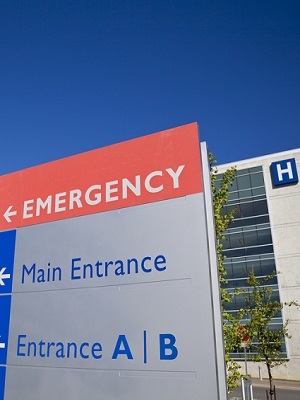A state appellate panel has struck down an Illinois law providing tax exemptions to hospitals, saying lawmakers erred under the state constitution in believing hospitals should be able to avoid paying property taxes because they may provide enough benefits to their communities to offset the millions of dollars in tax revenue lost to cities, counties, school districts and other local property tax-collecting entities.
On Jan. 5, a three-justice panel of the Illinois Fourth District Appellate Court sided with the Illinois Department of Revenue and a collection of local taxing bodies in Champaign County and the city of Urbana, who disputed the ruling of a Champaign County judge that a state law enacted in 2012 rightfully protected the operators of Urbana’s Carle Foundation Hospital from paying local property taxes.
The opinion was authored by Justice Appleton, with justices Turner and Steigmann concurring.
The matter arose out of a long-running dispute between the Carle Foundation and the local and state taxing bodies over how much the company owes in property taxes on four parcels of land in Urbana on which the Carle Foundation operates its 393-bed hospital, a day care center and a power plant for the hospital and related buildings.
Before 2004, the properties weren’t taxed, under the presumption they were used for charitable purposes, and thus, exempt.
However, in 2004, Champaign County officials moved to assess taxes against the property at full market value. The Carle Foundation appealed that decision to local and state tax review bodies and, ultimately, to Champaign County Circuit Court. While the matter remained pending, the county continued to assess the property until 2011, a year before former Gov. Pat Quinn signed into law a bill passed by the General Assembly. A provision of that law, referred to in court documents as section 15-86, granted hospitals tax exempt status should they provide enough benefits to the community, generally in the form of low-cost health care services for low-income community residents, to offset the tax revenue the hospitals would otherwise owe.
In 2014, Champaign County Judge Charles McRae Leonhard ruled the 2012 law meant the Carle Foundation and other hospitals like it should be considered exempt from property taxes.
On the appeal from the Illinois Department of Revenue and Champaign County taxing bodies, the appellate justices said they believed the judge did not interpret the law correctly in light of the Illinois state constitution’s language governing the circumstances under which state lawmakers can dole out tax exemptions.
Justices noted lawmakers had intended for the law to clear up controversy over just how much charitable care hospitals had to provide to qualify as charitable organizations eligible for tax exemption under the state constitution. The law addressed the controversy by allowing hospitals to qualify for tax exempt status if the value of its “services that address the health care needs of low-income or underserved individuals or relieve the burden of government with regard to health care services” exceeds its estimated property tax liability in a given fiscal year.
However, justices said this standard falls short under the Illinois state constitution, which requires organizations to use their property primarily for “charitable purposes” to allow that property to be exempted from property taxes. Thus, the justices said, the law effectively grants hospitals, which may not qualify for tax exempt status otherwise, the ability to purchase a tax exemption.
“Not only does section 15-86 settle for something less than exclusive use of the property for charitable purposes; it does not require any charitable use of the property at all,” the justices wrote. “Under section 15-86, a hospital entity can obtain a charitable exemption simply by paying subsidies to community clinics, for example … or by paying subsidies to the state or local government.
“But article IX, section 6, of the constitution requires exclusive use of the property itself for charitable purposes. A property owner cannot buy a charitable exemption.”
The justices said this renders section 15-86 unconstitutional, and thus, it cannot be legally applied to the Urbana hospital case.
The case was remanded to Champaign County courts.
However, the matter may be ticketed for the Illinois Supreme Court, as Illinois hospitals and their trade associations believe the decision could restart the statewide uncertainty faced by health care organizations over just how much Illinois hospitals should pay in taxes.
“The Illinois Health and Hospital Association is disappointed with the Appellate Court ruling,” said the IHA, in a statement released by spokesman Danny Chun. “The bipartisan legislation enacted by the Illinois General Assembly in 2012 had ended a decade of uncertainty regarding the test for hospital property tax exemption. The law is clear, fair and reasonable.”
Chun said the IHA believes the appellate ruling “is not a final decision and has no immediate impact.”
